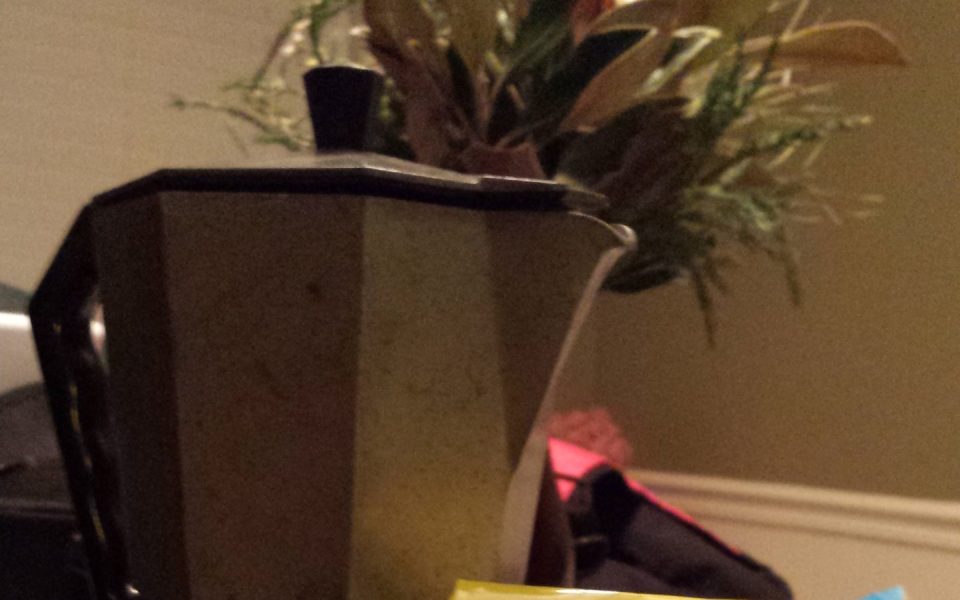Whenever I see it on a menu I order a Cuban coffee, a dark, mysterious little cup of bitter goodness. It’s hard to find around here.
The preferred grind for this beverage is Café Bustelo, an ancient blend of Caribbean origin that comes out of Miami these days, termed “Cuban style” though the brand was launched in East Harlem around 193 by a Spaniard-Cuban couple who came to the United States via Puerto Rico.
And you can buy Café Bustelo in just about any grocery store in town.
It comes in tight, vacuum-packed bricks, and from the second you snip it open you know something is different about it: the fine, velvety grind; the soft mahogany color. It’s so deep and dark and rich that it doesn’t even smell like coffee — it smells like coffee’s hotter older sister.
It doesn’t take but a few minutes to make in the old, iron espresso pot my wife found at a thrift store — about the same amount of time as it takes to brew a pot of the regular swill we drip through our coffee machine every morning, but the process is more intimate.
I use a spoon to fill the metal filter with the powdery grinds, packing them down with the back of it. I twist the two halves of the antiquated coffeepot together, never tightly enough, and set it on the stove.
The small vessel of water comes to a boil quickly, and just as the imperfect seal at the joint in the pot hisses and steams, the good stuff bubbles to the top.
It comes like oil through a newly struck vein, slowly at first, thick and black like syrup, dribbling into the upper urn until a crema forms on the surface of the coffee.
I take it with cream when I make it at home, a good dollop, and sometimes a charge of sugar. But really it doesn’t need anything.
The taste is soft but powerful, with notes of cocoa, tree bark, cigar… if I close my eyes I believe I can even get a glimpse into the soul of the man who roasted this coffee.
The pot makes enough for two good cups — enough to share, if you’re of a mind to, but if you go it alone, you pour off the second cup before you even finish the first and make it last as long as you dare.
Join the First Amendment Society, a membership that goes directly to funding TCB‘s newsroom.
We believe that reporting can save the world.
The TCB First Amendment Society recognizes the vital role of a free, unfettered press with a bundling of local experiences designed to build community, and unique engagements with our newsroom that will help you understand, and shape, local journalism’s critical role in uplifting the people in our cities.
All revenue goes directly into the newsroom as reporters’ salaries and freelance commissions.


Leave a Reply